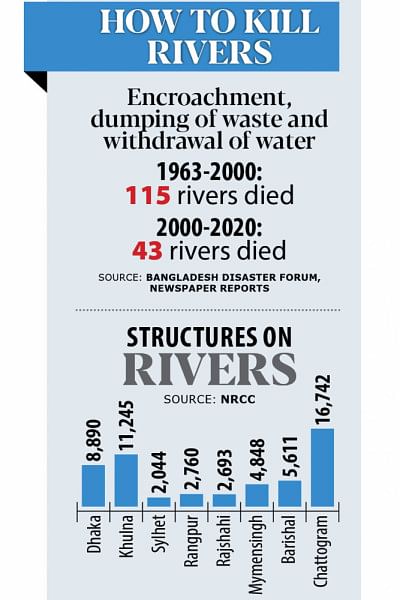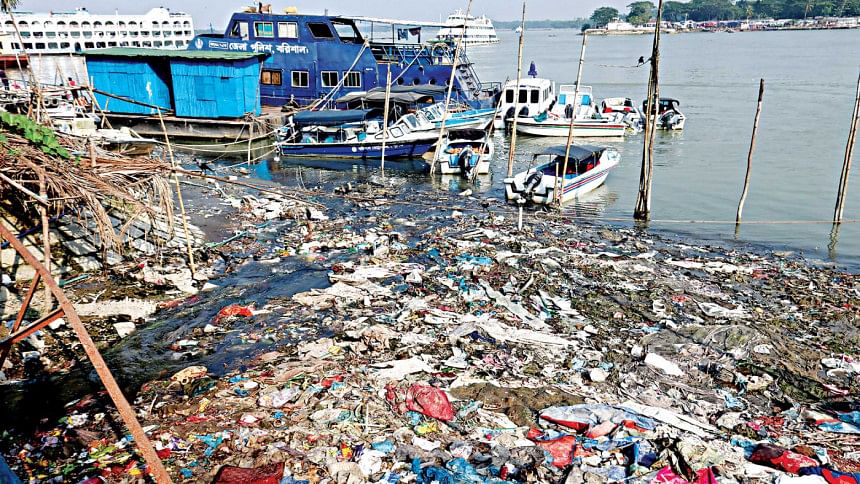Saving rivers: Ensure more power to river commission


Political commitment, proper enforcement of laws and empowerment of the conservation commission might be able to save the rivers, speakers told a roundtable discussion yesterday.
The rivers would not have been subjected to such mindless grabbing and encroachment had everyone recognised them as an integral part of development and wellbeing, said Saber Hossain Chowdhury, chairman of the parliamentary committee on environment ministry.
It should be recognised that a river is not just a waterbody, he told the discussion on Rivers and Our Future organised by The Daily Star at its office in the capital.
Muzibur Rahman Howlader, former chairman of National River Conservation Commission (NRCC), said the government agencies in charge of river conservation do very little to save the rivers.
"I visited 30 districts, prepared a list of grabbers in which the names of powerful individuals appeared, and made many recommendations. All went unheard."
"I visited 30 districts, prepared a list of grabbers in which the names of powerful individuals appeared, and made many recommendations. All went unheard. Those in charge of conservation of rivers must be held accountable, if we really want to save the rivers," he said, adding that the top bureaucrats were reluctant to take action.
He then urged the government to increase institutional capacity and empower the NRCC.
Mahfuz Anam, editor and publisher of The Daily Star, said many voices were raised and many media outlets wrote a lot to save the rivers, but no significant change was made.
"I was ecstatic… when High Court issued the directive to demarcate the rivers, thinking it was an epoch-making directive for the conservation of rivers. In reality, we saw it appeared as a curse instead of a blessing as the demarcation pillar legitimised the grabbing," he said.

Asif Nazrul, professor of law at Dhaka University, said a significant legal development took place over the years: the river commission was formed and the court declared the river as a living entity. "This sounds soothing. But the actual situation did not change."
The Department of Environment (DoE) has been given enormous power without accountability, he said, adding that the department's officials often feel scared to take actions as the ones who crackdown on polluters during caretaker government in 2007 were later made officer on special duty.
Malik Fida A Khan, member of the NRCC, recommended that the issue of river pollution be included in text books to create awareness among children.
Former Buet professor Mujibur Rahman said international negotiation was required to lower the rate of siltation in different rivers because the issue involves siltation upstream.
Deforestation and lack of vegetation on the river banks are among the main reasons behind increased siltation, he said.
Since Bangladesh lies in a Delta with its high population density, the country can experience a "humanitarian catastrophe" if it fails to save the rivers, said Sharif Jamil, general secretary of Bangladesh Poribesh Andolon.
Sharmeen Murshid, chief executive officer of Brotee, said political parties have to show their ideological visions to save the country's rivers.
Besides, the NRCC has to play a proactive role in this regard, she said.
Sheikh Rokon, secretary general of Riverine People, said the economic value of rivers has to be brought back so that community people "own" rivers and protect those from pollution and encroachment.

 For all latest news, follow The Daily Star's Google News channel.
For all latest news, follow The Daily Star's Google News channel. 



Comments